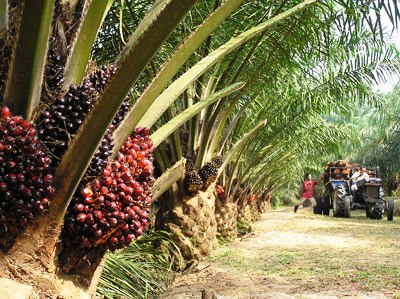Palm oil is the most commonly produced vegetable oil in the world with an estimated 66 million tons annually. In Cameroon, between 2010 and 2014, the national demand for palm oil was around 450.000 tonnes. However, at the moment, the country produces about 230.000 tonnes of crude palm oil, which makes a deficit of 130.000 tonnes.
To cover the gap, Cameroon has been importing palm oil from Asian countries and neighbouring Gabon, coupled with a proposal from the Rural Sector Development Strategy to increase production to 450.000 tonnes in 2020.
“We are now in 2021, the production of palm oil in the country has not changed positively, the government initiated a move to develop a national strategy to produce palm oil since 2014, but seven years after, the adoption and implementation of the strategy is still expected, I think that is a big problem in developing the sector.” Says Ekane Nkwelle, Project Manager at Green Development Advocate (GDA).

The delay in defining a legal framework covering palm oil production in Cameroon is not only affecting the demand and supply chain. Throughout the country, there is a strong demand for land to establish new palm oil plantations like with CAMVERT in the south region or the extension in existing areas like SOCAPALM in the Sanaga Maritime and Moungo Divisions. This is not without consequences for communities, small scale farmers and the environment.
“We have the impression that we have been abandoned in the desert by the government, small scale farmers have waited for long for incentives to help them boost production to no avail. We are calling on big production companies not to swallow us the small ones in the palm oil sector.” Laments a small scale farmers, Emmanuel Elong, President of Synaparcam, who attended a press conference organised by Green Development Advocate (GDA), Thursday August 5, 2021 in Yaoundé.
Focus of the conference was to lobby and encourage the government to multiply efforts in adopting and implementing the highly expected national production strategy for palm oil in Cameroon.
Sustainable National Strategy for Palm Oil Production
During the press conference organised at the Head office of GDA in Yaounde, political capital of Cameroon, it was revealed that some 38 civil society organisations have drafted a sustainable policy for palm oil production which presents the socio-environmental consequences of the establishment of palm oil companies and proposes key points which must neccessarily be integrated into the earmarked national strategy.
Large-scale conversion of tropical forests to oil palm plantations has a devastating impact on a huge number of plant and animal species. Oil palm production also leads to an increase in human-wildlife conflict as populations of large animals are squeezed into increasingly isolated fragments of natural habitat.

“To set up their plantations, most oil palm companies destroy the forests and in the process, most forest animals are pushed into neighbouring farms and they end up eating farm seeds, destroying crops, while aquatic species are also pushes far off. The consequences on the local communities are many, hunting activities for instance are slowed drastically.” Declared Nguena Carrele Mawamba, Project Coordinator at GDA, who has worked with communities in Campo, in the South region of Cameroon.
Recommendations from Civil Society Organisations
Green Development Advocate (GDA), and the other CSOs who drafted the policy are of the opinion that what ever is it that is preventing the adoption and implementation of the government’s national oil palm production strategy, there is urgent need to revisit and complete the process. But owing to the identified and existing challenges, the powers that be need to involve actors from diverse sectors.
“It would be best if it is carried by a multi-stakeholder group to ensure better implementation by the different parties.” Says Ekane Nkwelle, responding to questions from News Upfront.
The CSOs are also calling on the government to create voluntary win-win partnerships between Agro-Industries and small scale producers; facilitate access to finances for small scale producers; promote the regeneration of old plantations using appropriate technologies in order to intensify production on existing plantations without increasing the area under cultivation; improve processing capacity and extraction rates in smallholder oil mills, which are currently very low; establish incentives for small scale producers to take environmental issues into account in their development (REDD+, PES); promote the conservation of high value species and with high carbon stock and promote respect for the rights of residents and workers in Agro-Industries.
GDA strongly believe that with this document and recommendations, a new page could be turned by opening broad discussions which could positively change the narrative.








